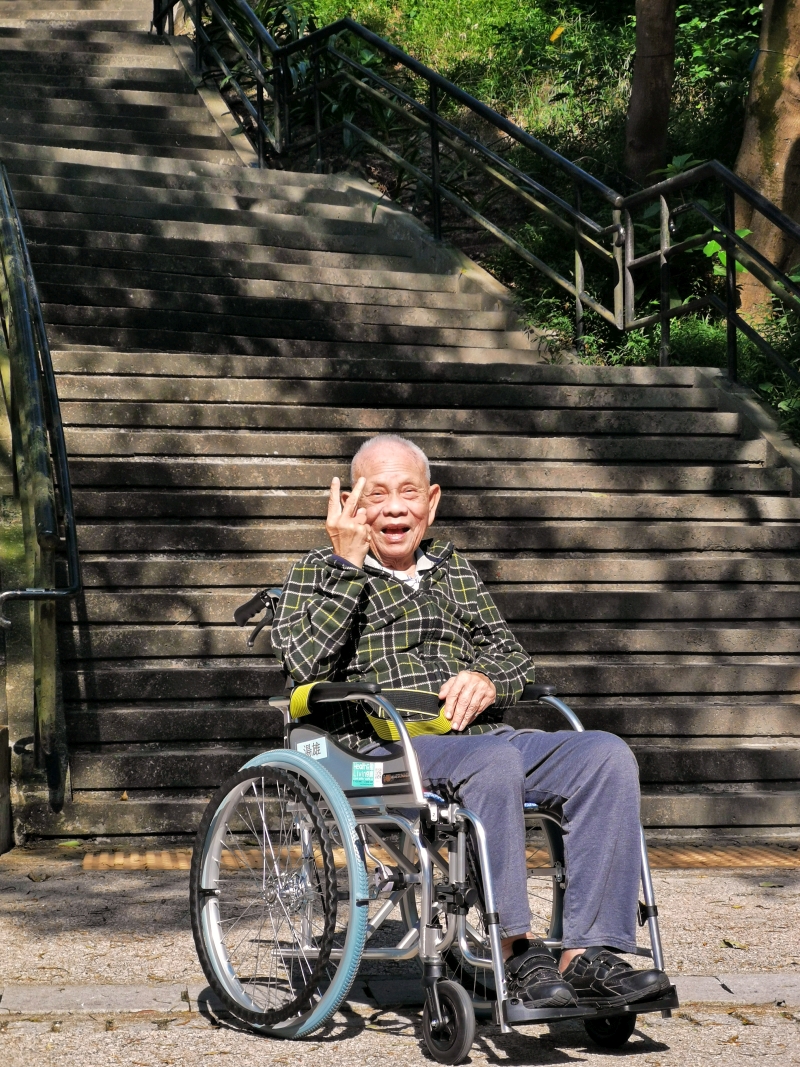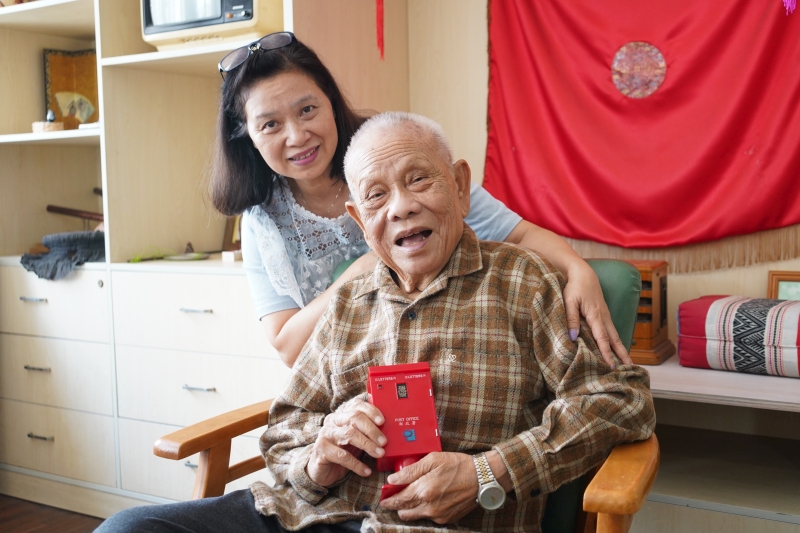Story
Recognizing elderly's life stories and achievements
‘My name is Tong Hong. I was born in 1929, now I’m 90 years old.’ Just like any of us, Uncle Tong has his own unique life experiences. He has made lots of contributions to the society in his young days and he is now a service user of The Salvation Army ‘Palliative Care in Residential Care Homes for the Elderly’ project. Despite his old age with common elderly health problems and difficulties in mobility, whenever he talks about his past, Uncle Tong will be full of energy and beam with smiles. His life story can be summed up in three words: diligent, brilliant, successful.
Working as postman brings sense of satisfaction
Tong Hong was born in Guangzhou during the Japanese invasion of China. Not being able to go to school, he later came to Hong Kong and began his decades of working life, during which he had four jobs. Working as a postman has been the most satisfying job for him. At that time, Uncle Tong was mainly responsible for delivering mails at Leighton Road in Causeway Bay. ‘Every day the amount of posts was different. I had to work overtime from time to time. I find the period of Cultural Revolution most unforgettable. At that time, people liked to send some daily necessities to the mainland China through the post offices, such as soy sauce or salted fish. A parcel could weigh up to 2 or 3 pounds.
Uncle Tong had worked as a postman for over three decades and his work performance has gained high recognition of his superiors and fellow residents in the neighbourhood. ‘Mail delivery’s got to be fast and accurate in a polite and honest manner, otherwise you’ll be complained. Many people praised me, calling me the ‘outstanding postman’ of the district. When I retired, I was granted a travel allowance. I decided to make a trip to Europe. That was the first time I had ever fly in a plane!’
For his life Uncle Tong adheres to three principles throughout his life: Diligence, honesty and frugality. He misses his busy life in the past, but he knows his current condition well and now just takes things as they come, ‘Life is ever changing. I know myself very well, and I can’t ask for everything.’
Sharing life story
Uncle Tong’s daughter is proud of her father, ‘My dad was born in unsettling times, but he has been striving to stay strong and do what he wants to do. He has achieved much more than many people.’ However, his physical health is far worse than before. At last he was sent to a residential care home, where he came to know The Salvation Army and joined the ‘Palliative Care in Residential Care Homes for the Elderly’ project, which has provided him with early intervention services and support for body, mind, social life and spirituality. He also takes part in activities organised by the project.
Recently, the project has organised the ‘Memory Theatre’, showcasing unique life stories of senior citizens and their reminiscences of the good old days, including Uncle Tong’s story. Nicole, social worker of The Salvation Army ‘Palliative Care in Residential Care Homes for the Elderly’ project said, ‘Very often we put so much focus on the elders’ illnesses that we would overlook what had happened in their lives. In collecting the stories, we found that if elders see objects related to their past, they would be very responsive and overjoyed.’ On the day of the interview, there was a red posting box model at the scene. Uncle Tong’s eyes lit up as soon as he saw it and told us stories of his past, beaming with pleasure. A simple act of listening their life experience can already be very heartwarming for the elders.
‘Memory Theatre’
Each elder has their unique life experience, but very often we only focus on their physical conditions, especially those being admitted to a residential care home. When we are so engaged in taking care of their health, we may overlook their personal experience. The Salvation Army ‘Palliative Care in Residential Care Homes for the Elderly’ project is organising ‘Memory Theatre’ Exhibition, inviting elders to share their reminiscences of the good old days and think about their life in future based on that foundation. The touring exhibition of the unique stories of the elders will be held from September to December in the 15 residences under the Army.
Early Intervention Progamme
The Salvation Army ‘Palliative Care in Residential Care Homes for the Elderly’ project provides end-of-life care for elderly persons and also provides early intervention services to residents with chronic illnesses or dementia to help them with advanced care planning. Very often, the physical conditions of elderly persons are not stable, which sometimes may even deteriorate suddenly, making it hard to know how much time remains for them. Hence, when the elders are still in a sound physical and cognitive condition, the project, through early intervention, provides timely support for body, mind, social life and spirituality for the elders and their family members to help coordinate communication with the elders and to make proper arrangements for their later life. Services include visits, regular monitoring of the elders’ physical and emotional conditions and social life and different activities.
For more details:
https://www.facebook.com/SAPCProj/











